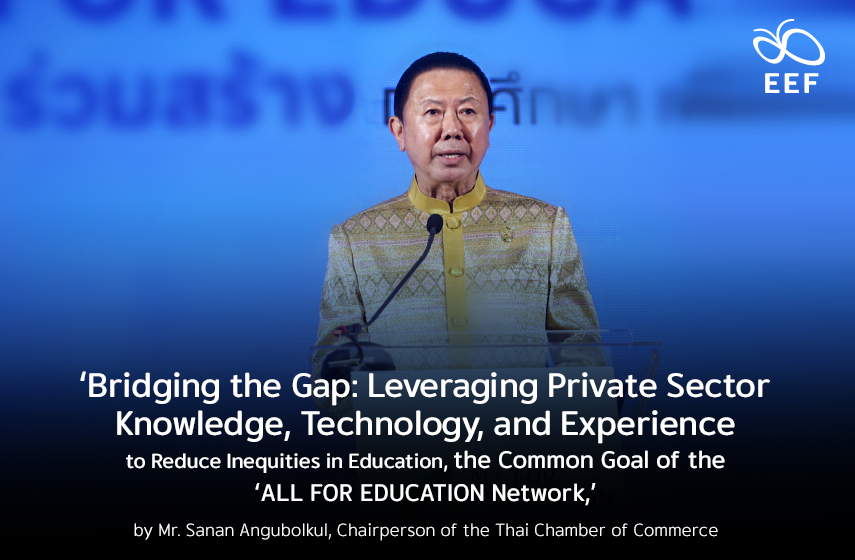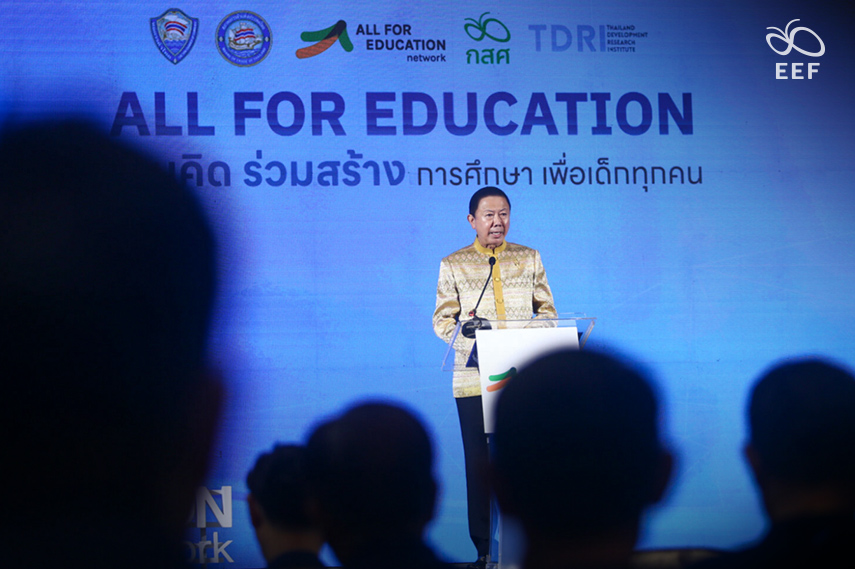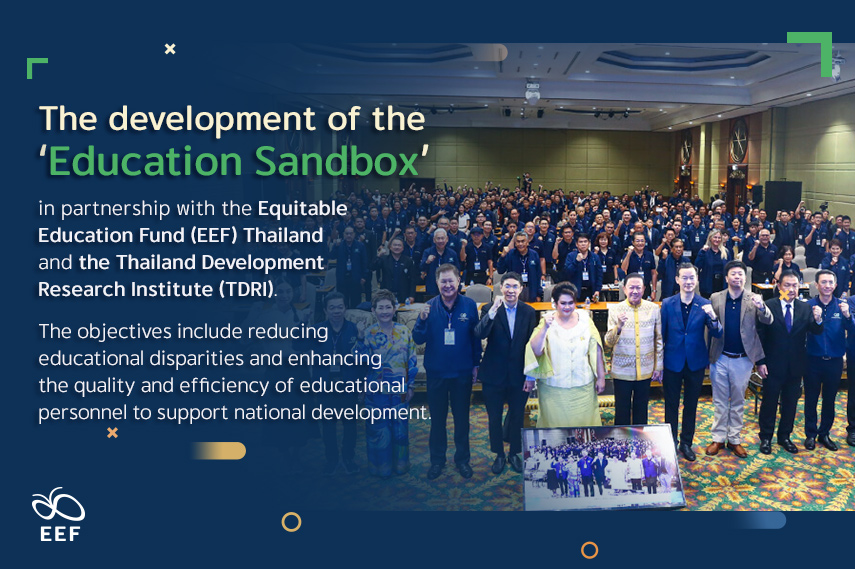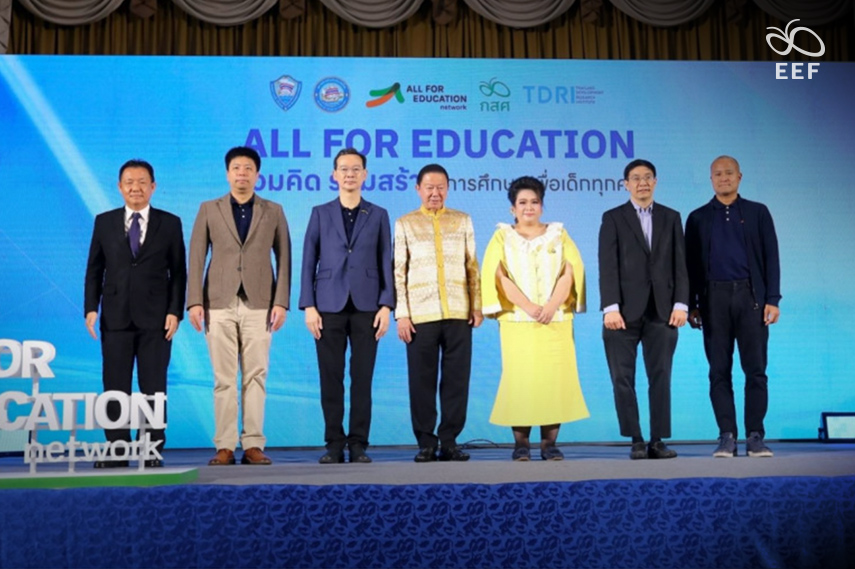
Mr. Sanan Angubolkul, Chairperson of the Thai Chamber of Commerce, discussed the shared goal of the ‘77 Provincial Chambers of Commerce: All for Education’ network at its launch during the ‘All for Education: Envisioning and Constructing Education for All Children’ event. The primary aim is to elevate human capital development and enhance Thailand’s capabilities through the ‘Sandbox Fund.’ This collaboration involves the Thai Chamber of Commerce, the Equitable Education Fund (EEF) Thailand, and the Thailand Development Research Institute (TDRI).

It must be acknowledged that global education is currently evolving with curriculum development tailored to the needs of the new labor market era. This trend has become more evident since the COVID-19 pandemic, accelerating digital transformation and AI adoption across all sectors prompting widespread and multi-level changes. This development aligns with one of the four challenges the Thai Chamber of Commerce highlighted, urging all relevant sectors to prepare for the impending economic shift.
Beyond geopolitical, population, and climate changes, ‘technology change’ will also play a crucial role in education. It is widely recognized that Thailand must expedite adapting its education system to meet the demands of rapidly changing global labor market trends and support government policies to promote Thailand as an attractive destination for Foreign Direct Investment (FDI) in new-age industries. Investment applications have significantly increased in the past year, reaching a five-year high of 840 billion Thai baht.

If the investment trend continues to rise steadily, Thailand must accelerate the production of skilled personnel to accommodate the influx of new investments. To this end, the Thai Chamber of Commerce, Provincial Chambers of Commerce, and Youth Entrepreneur Chambers of Commerce (YEC) nationwide have collaborated to support the development of the ‘Education Sandbox’ in partnership with the Equitable Education Fund (EEF) Thailand and the Thailand Development Research Institute (TDRI). The objectives include reducing educational disparities and enhancing the quality and efficiency of educational personnel to support national development.
Educational institutions in provinces where the Education Sandbox is implemented will have the opportunity to tailor teaching and learning methods to meet their areas’ specific needs and contexts through various educational innovations. This approach will empower Thai children to communicate in English and other foreign languages, thus bridging them to wider learning environments.
Meanwhile, the roles of the chambers of commerce, the YEC, and the private sector in the provinces where the Education Sandbox is implemented involve supporting the transfer of knowledge, technology, and experience to educators, students, and learners by acting as mentors. This collaborative effort aims to develop curricula that integrate theoretical and practical learning experiences.

It is believed that close collaboration among the government, private sector, and educational institutions, using a “Connect the Dots” approach, will expand the impact from 20 provinces to the rest of the nation shortly. This will help drive the growth of young talent and contribute to the economy’s rapid expansion.

